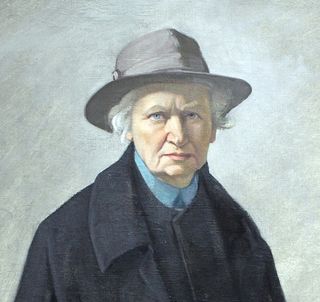Bias
Please Don’t Call Me “Hon”
Kindly do not use a term of endearment with me unless you know me really well.
Posted May 29, 2017 Reviewed by Lybi Ma

Recently it occurred to me that I have spent an inordinate amount of time in my life trying to get people to take me seriously.
I don’t mean to imply that I am not taken seriously because I am constantly making jokes or uttering self-deprecating remarks—although there was a time in my twenties when I did far too much of the latter. No. I am talking about my periodic struggles to convince everyone from workplace colleagues and higher-ups to total strangers that my concerns, my observations, and even my mere presence have value and that I am deserving of attention, courtesy, and respect.
If you read my professional bio, you might think I could not possibly have had such a problem. I am fully and humbly aware that, by any national or global socio-economic measure, I fall into the category labeled “Incredibly Fortunate.”
And yet in professional positions from my twenties on, I struggled to be taken seriously—first in the academic world and then in journalism. I encountered sexism in both of these fields, even though it took me years to fully recognize and understand its effect on me.
More recently, hardly a month has gone by when I am not brought up short by the realization that the stranger I am talking to has decided to dismiss me, and she or he has done so with just one swift word: either “Hon” or its equally demeaning twin sister “Dear.”
I can guess what some of you are thinking. It’s along the lines of: “Wait. There’s nothing wrong with that. You’re just being too sensitive.” I only wish that were true.
I am willing to concede that in some places—for instance, diners in New Jersey, where waitresses calling both female and male customers “Hon” seem to be as much a part of the ambiance as Formica tabletops, Naugahyde benches, and glass sugar dispensers—it may well be true. But I firmly believe that, in nearly every other context, the use of these terms of endearment by total strangers is not only inappropriate but also—whether consciously or unconsciously on the speaker’s part—condescending and demeaning.
As a retail customer, I have been called “Hon” by a young woman cashier at a big-box electronics store and a young woman cashier at a big-box hardware store.
In March I was called “Dear” on the phone by a crabby representative at my electric company during a conversation that already was not going well. (I moved last fall, had not received an electric bill for five months at my new address and was trying to find out why.) I was so frustrated by then that I burst out, “Please don’t call me ‘Dear.’ It’s extremely condescending unless you are a close friend or a relative.” The representative didn’t respond to my plea but, perhaps in retaliation, she immediately called me “Mrs. Hopper,” which was wrong on two counts—the spelling of my name and my marital status.
At a doctor’s appointment just last week, the receptionist called me “Dear” and then “Hon” and then “Hon” again and then “Dear”—all in the space of a five-minute check-in. I was so astonished that I decided to invoke the New Jersey Diner rule and give her a pass.
At the electronics store, I had an outlet for my frustration. As I turned away from the cashier in silent dismay, I saw a sign over a nearby counter that said, “Customer Service: How May We Help You?” I marched over to the counter and, when a young man approached me to see what he could do, I blurted out what had just happened. Being careful not to identify the cashier, I tried to explain to him why the use of “Hon” was so insulting and why employees should be trained not to use it with customers. He listened to me soberly and assured me he would pass along my concerns. But as I walked away, I couldn’t help but wonder whether he—a tall, slender, seemingly self-assured twenty-something male—had even the faintest idea why I was so upset.
For those of you who may be as perplexed as that young man might have been, here is my explanation, which I freely admit is based solely on my own observations over the years. With the aforementioned exception of New Jersey diners and similar locales, I think the “Dear” and “Hon” phenomenon happens to women much more often than it happens to men. I also think it happens to older women much more often than it happens to younger women.
Thus, I believe it reflects an unconscious societal bias against women in general and older women in particular. This is a bias that deems it acceptable in our society to trivialize, demean and be disrespectful toward women—especially older women—by referring to them as “Dear” or “Hon” even if one has never laid eyes on them before.
Seen from this perspective, older women are not intelligent, responsible, autonomous adults who deserve to be treated as such. They are merely sweet, inconsequential “dears”—stereotypical little old ladies, whether they are 55 or 85. Using these terms with older women is the verbal equivalent of a dismissive pat on the head or a pinch on the cheek—precisely the way one would treat a sweet, innocuous, helpless child.
I am fully aware that many groups in our country are under siege these days; this is a terrible, dangerous time for people of color, religious minorities, and immigrants, among others. It may seem foolish to get upset over the inappropriate use of a term of endearment when there are people facing physical danger every day because of the color of their skin, their ancestry, the place where they worship, the gender of their partner, or even the way they pronounce English.
And yet, while they are not necessarily making headlines every day now, sexism and ageism remain powerful and insidious presences in our culture. As many of us strive to make a world free of –isms of all types, sexism and ageism are two forms of prejudice we should not overlook. Being mindful that an older woman is just as deserving of respect as a thirty-something man is one place to start.
Copyright © 2017 by Susan Hooper




